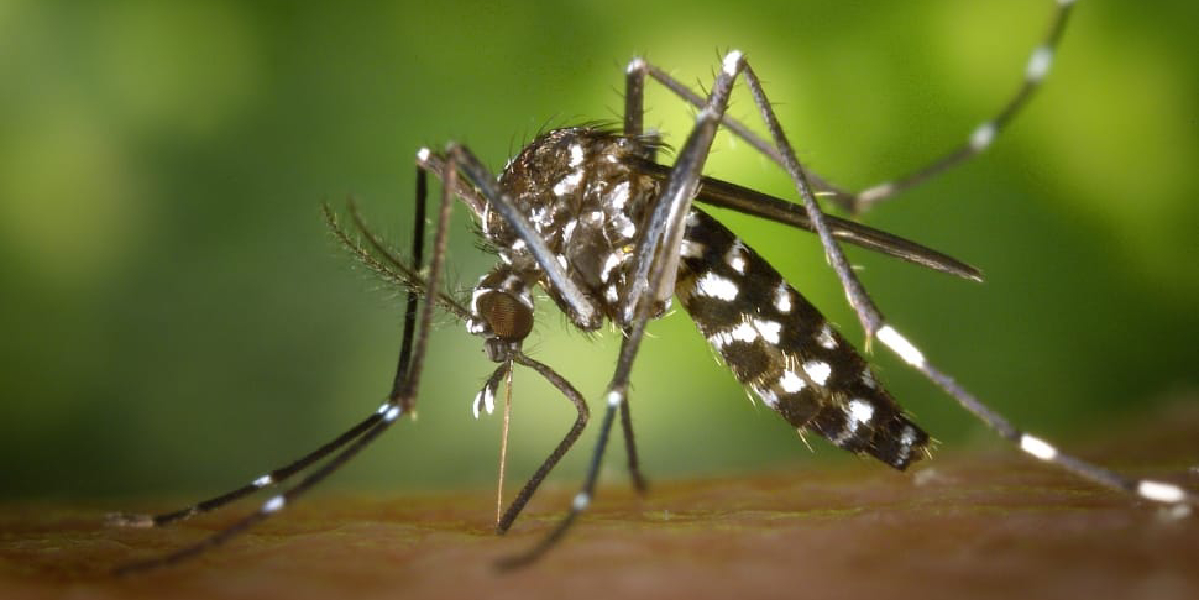India has faced significant challenges in managing chikungunya, with outbreaks occurring in states like Karnataka, TN, Delhi, and Kerala.

Currently, there are no approved vaccines to prevent the disease caused by CHIKV virus nor are there effective antiviral treatments for the disease. (Creative Commons)
A single-dose vaccine for chikungunya was found to be safe and it produced a strong immune response against the viral disease, according to the results of the first phase 3 trial published in The Lancet journal.
However, the researchers were unable to investigate whether the VLA1553 vaccine, developed by French biotech company Valneva, protects against subsequent exposure, since the study was not conducted in regions where chikungunya is an endemic.

Chikungunya rash on the foot. (Wikimedia Commons)
Chikungunya is a viral illness transmitted by mosquitoes, specifically the Aedes aegypti and Aedes albopictus species. It typically manifests as a fever within four to eight days after an individual is bitten by an infected mosquito. Symptoms include fatigue, headaches, nausea, rashes, and severe muscle and joint pain.
The joint pain caused by chikungunya can be debilitating, lasting from a few days to weeks, months, or even years. While severe cases and fatalities are rare, older individuals and newborns are at higher risk.
India has faced significant challenges in managing chikungunya, with outbreaks occurring in various states such as Karnataka, Maharashtra, Tamil Nadu, Andhra Pradesh, Kerala, and Delhi. The number of reported cases has varied from year to year.
Chikungunya is an endemic in certain regions of Africa, Asia, and the Americas, posing ongoing public health concerns.
Currently, there are no approved vaccines to prevent the disease caused by the CHIKV virus nor are there effective antiviral treatments for the disease.
“This could be the first chikungunya vaccine available for people living in endemic regions, as well as for travellers to endemic areas or areas at risk for an upcoming outbreak,” said study lead author, Martina Schneider, Clinical Strategy Manager at Valneva, in a statement.
“Our promising results showed good persistence of antibody levels after vaccination, which is important considering that chikungunya outbreaks may recur suddenly. As age is a risk factor for severity and mortality of chikungunya disease, the strong immune response observed in older participants might be particularly beneficial,” Schneider said in a statement.
Study author Katrin Dubischar, Program Director, Chikungunya Vaccine at Valneva, noted that there is no dedicated treatment or vaccine available against chikungunya.
“Moreover, it is currently regarded as one of the viruses most likely to spread globally and studies have shown that climate change is driving the spread of the mosquitos that carry it to new areas of the world. Therefore, having an effective vaccine is important for preparedness for future outbreaks,” Dubischer said.
The study conducted a phase 3 trial of the VLA1553 vaccine in the United States, involving 4,115 healthy adult participants across 43 study sites. Among them, 3,082 individuals received a single dose of VLA1553, while 1,033 received a placebo.
All participants were included in the safety analysis, but the immune response was assessed in a subgroup of 362 participants (266 vaccinated and 96 given the placebo). The participants’ immune responses were evaluated at multiple time points after vaccination — one week, 28 days, three months, and six months. Adverse events were recorded for 11 days using an electronic diary.
The results showed that after a single dose of VLA1553, the vaccine-induced antibody levels that were considered protective against the disease was seen in 99 percent (263 out of 266) of vaccinated participants. The researchers noted that there was no difference in immune response based on age.
VLA1553 was generally well tolerated across all age groups, with most adverse events being mild or moderate. The most common adverse events reported among vaccine recipients were headaches, fatigue, muscle pain, joint pain, and injection site pain.
After six months, more adverse events were recorded among those who received VLA1553 compared to the placebo group. The safety profile in older adults was similar to that of the overall adult population.
The study has some limitations. Since it was not conducted in an endemic region, the participants’ pre-existing immunity to the chikungunya virus and the vaccine’s safety in this population remain unknown. Additionally, as the vaccine is made from a weakened form of the live virus, it may not be suitable for individuals with weakened immune systems or pregnant women.
The authors also acknowledge the importance of studying the safety and efficacy of the vaccine in children, as administering a chikungunya vaccine to children would be crucial in effectively controlling the disease in endemic regions. Currently, a study is underway in Brazil, involving adolescents in endemic areas, to assess the safety and efficacy of the vaccine in this age group.
Kathryn Stephenson from the Center for Virology and Vaccine Research at the Beth Israel Deaconess Medical Center in a statement said, “The positive results of this trial are very good news for CHIKV pandemic preparedness.”
“CHIKV and other arboviral infections continue to be global threats, spurred on by the expansion of mosquito habitats because of climate change and globalisation of trade and travel,” Stephenson, who was not involved in the study, said.
“Further studies of VLA1553 in endemic regions and expanded populations, such as an ongoing trial in adolescents in Brazil, will be critical to affirm VLA1553’s value for CHIKV prevention, as will be real-world effectiveness studies in the context of actual CHIKV outbreaks,” Stephenson added.
(With PTI inputs)

Jun 02, 2024

Jun 01, 2024

May 31, 2024

May 31, 2024

May 31, 2024

May 31, 2024